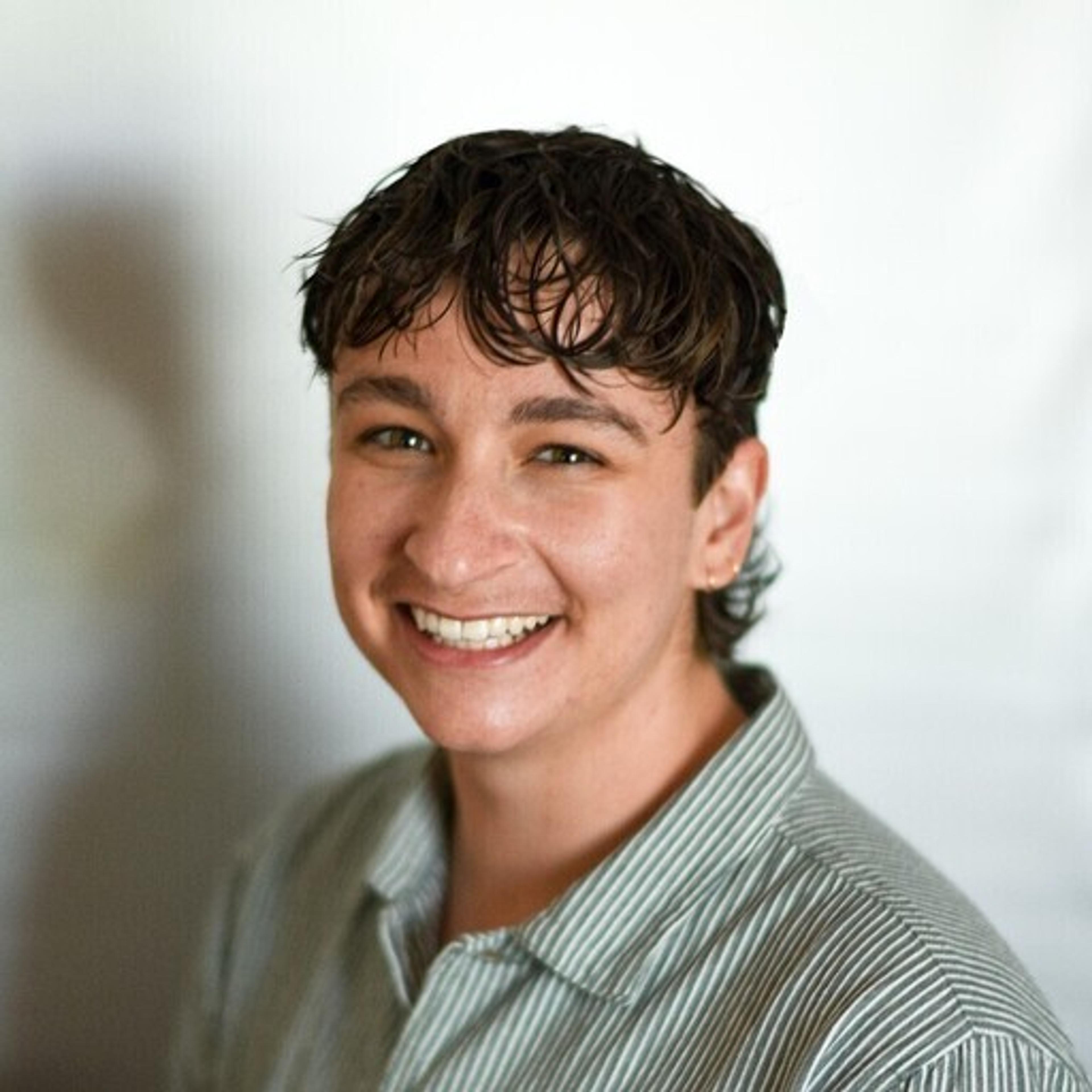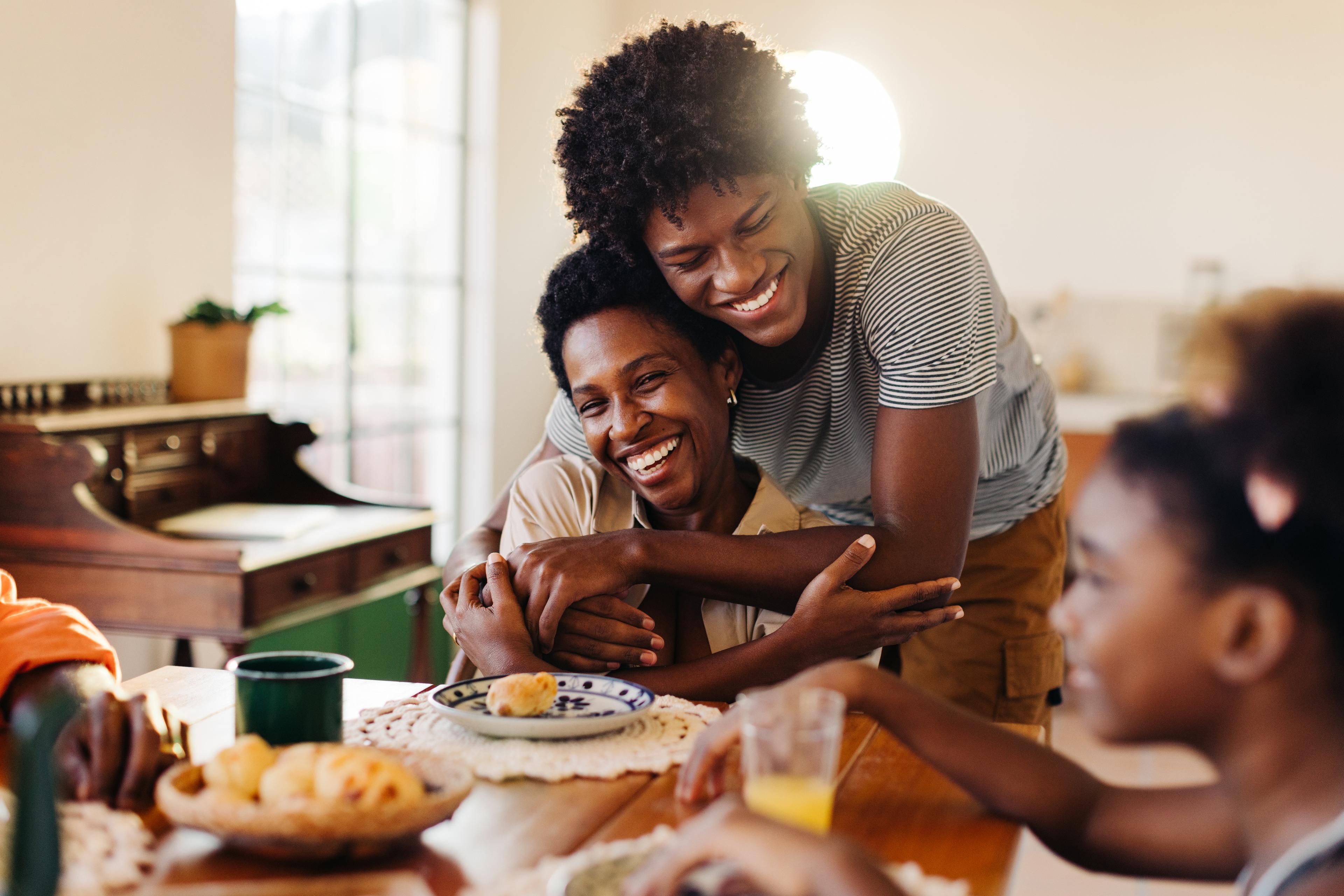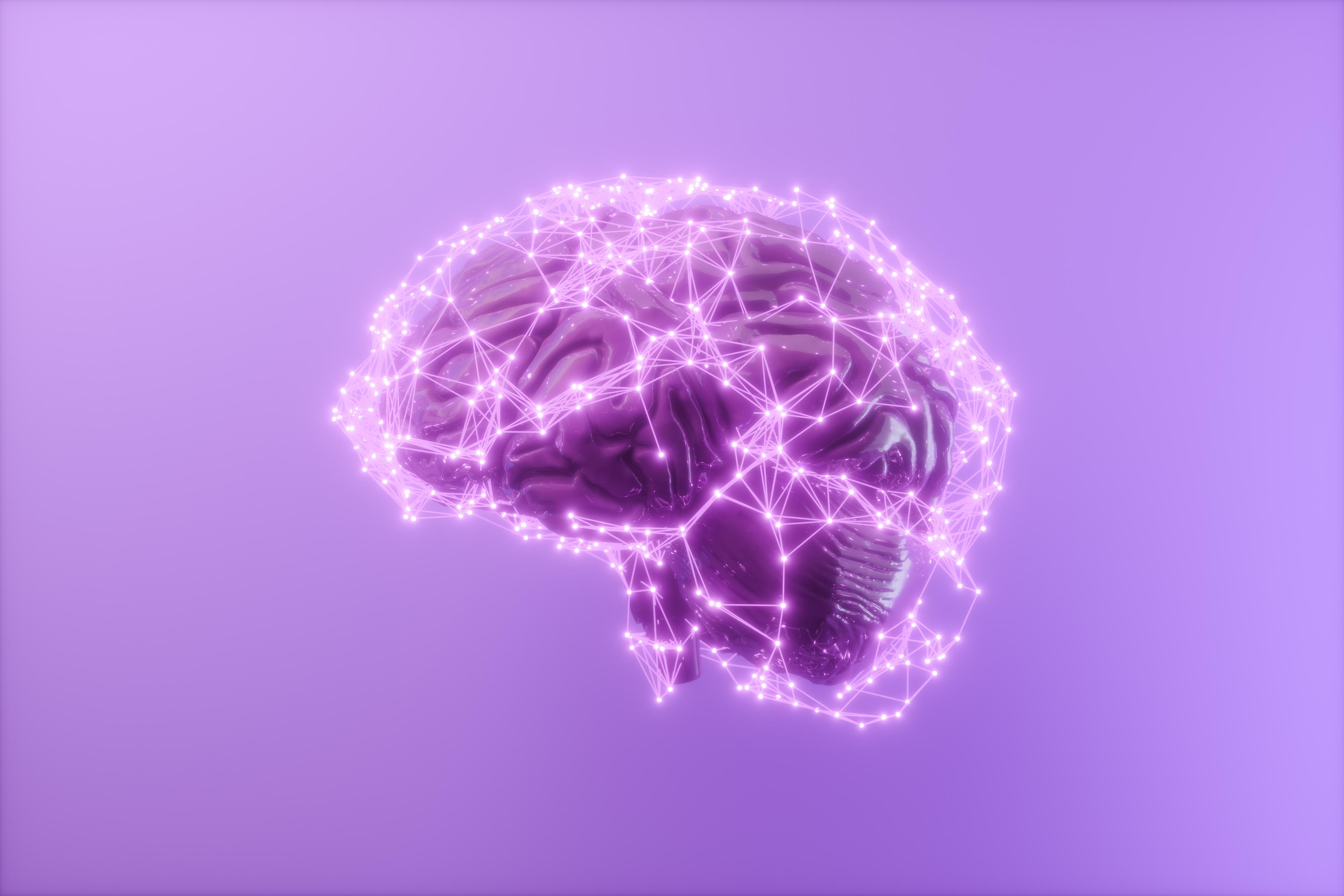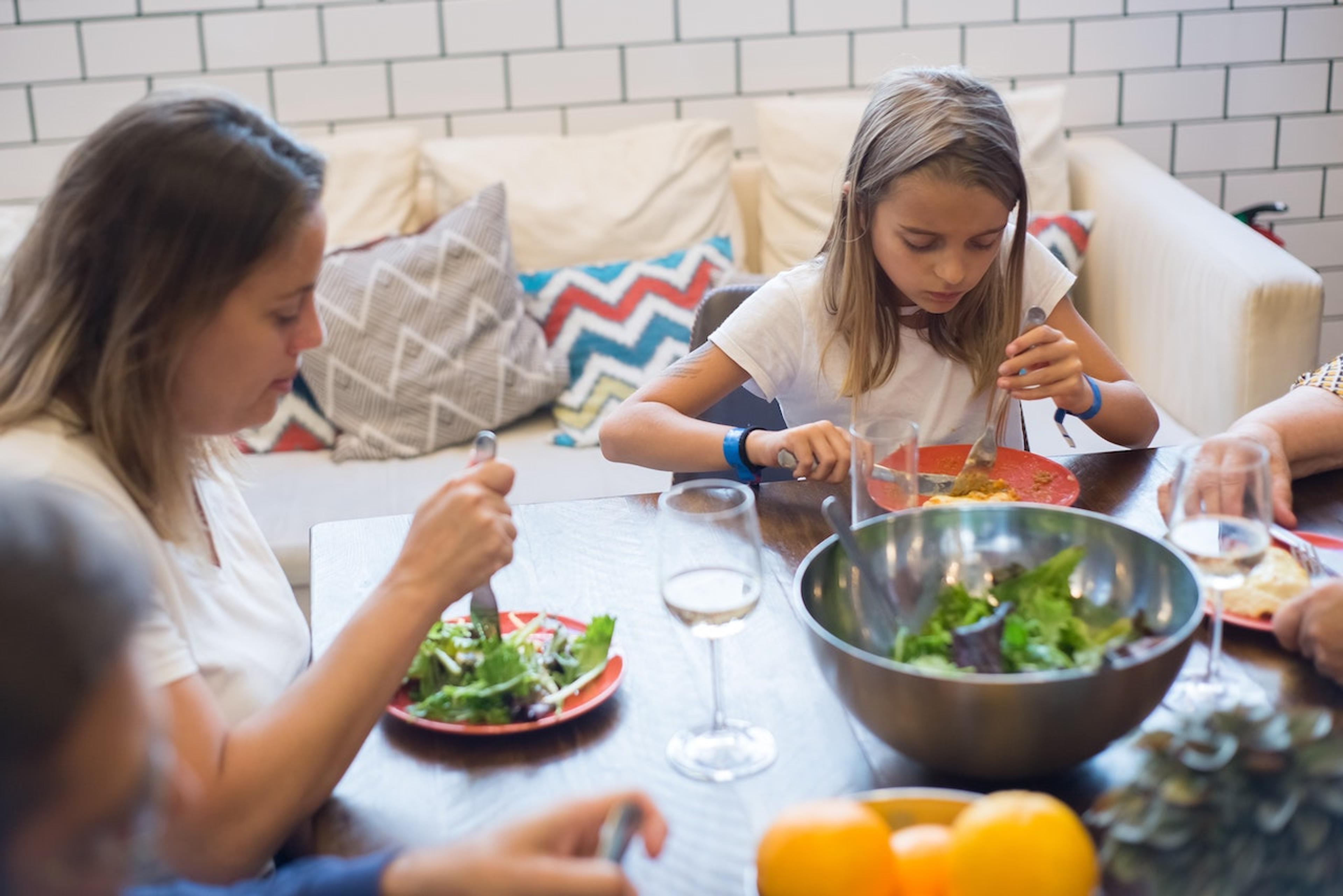
Eating disorder recovery can be difficult any time of year, but navigating the holiday season—a time filled with food-centered celebrations—can be especially thorny. Thanksgiving in particular tends to be a challenging day for those struggling to improve their relationship to food or their bodies. In addition to the big meal and any distress that might cause, those working toward recovery might also have to interact with family members or friends who don’t fully understand or know about their recovery journey. Bracing for unsolicited and potentially hurtful comments on top of an atypical meal can be tough—but there are things you can do to make the day more manageable and continue thriving in recovery.
“Thanksgiving is one of those holidays where disordered eating and thoughts are both prevalent and popular,” says Ally Duvall, Senior Program Development Lead at Equip. “When comments around dieting, eating behaviors, or bodies come up, it can be hard to know what to say in the moment, especially when it comes from family members or friends.”
Here are some of the tried-and-true tips that Equip team members have for addressing diet culture messaging and triggering comments during Thanksgiving:
Set boundaries ahead of time
“One thing you can do is practice making some boundary statements ahead of time, so that if those topics come up, you're prepared,” Duvall says. “Some of my favorites are: ‘I'm not comfortable talking about my body like this, please change the topic’; ‘I don't have to earn or compensate for the food I am eating’; ‘I'm trying to not talk about diets or bodies this year. Would you like to try that with me?’”
Equip’s Director of Program Development, Tana Luo, PhD, says boundaries are an integral part of preparing for the holiday. “It can be helpful to cope ahead and role play with a trusted loved one about how you might respond if someone brings up weight or dieting at Thanksgiving,” she says. “Assert and honor your boundaries. Come up with a list of safe topics ahead of time that you can fall back on if the conversation turns to weight or dieting.”
Megan Hellner, DrPH, MPH, RD, CEDRD-S agrees that an important part of planning for the holidays includes setting boundaries with family members around appropriate and preferred discussion topics. “Engaging in talk about weight or body shape may be part of the family culture, but that doesn't mean we need to participate. If it's difficult to have those conversations directly, or you're afraid you may not be heard, ask a safe person to help you reach the family member in question,” she says. “Acknowledge that loved ones may be in a very different place as far as their relationship with food goes. This is not an excuse for engaging in diet talk, but it may be an explanation.”
Practice expressing your feelings in a positive way
One strategy Hellner recommends is implementing “I statements,” a style of communication that involves using the first person pronoun to convey emotions or address relationship issues.
One example Duvall suggests is: "I have a hard time staying present and enjoying the meal when the conversation goes toward weight loss. If it's important to talk about weight loss, can we agree to have those conversations when I'm not around? I would really appreciate the support with my recovery."
Additionally, if there are concerns about family members inquiring about your struggles with food or weight, Hellner says it’s perfectly fine to specifically ask that those topics also be avoided on the holiday or in the company of others. “Family can help with this as well,” she says. “Think of a respectful and direct one-liner you can use during dinner to move the conversation away from food and weight. For example, ‘Talking about food and weight is a pain point for me. Is it alright if I change the subject?’”
For those who feel comfortable being a little more straightforward, Hellner recommends this: "It really is concerning that we're spending this special time we have together talking about weight and calories, and it's harmful for my recovery. Let's focus on something more energizing or fun."
Make an effort to be your own best advocate
Holiday challenges offer a great opportunity to really practice our skills in an environment that would otherwise be overwhelming for pro-recovery behaviors.
“Expect to have to advocate for your recovery, and think about what this may look like for you in practical terms,” suggests Hellner. “Does this mean creating a new holiday tradition that's less food-centric? Or finding a new group to enjoy the meal with? Or a smaller-than-usual family gathering? Ask for help from your treatment team on how to make the holidays feel a bit more safe.”
Prioritize proper nutrition before, during, and after the holiday
While it might feel tempting to stray from your meal plan in an effort to “make room” for an impending Thanksgiving dinner, Hellner emphasizes that restriction of any kind almost always backfires in a big way.
“As far as the meal itself, let's reject this idea of 'saving your appetite' for Thanksgiving dinner,” Hellner says. “It's neither helpful nor necessary. Try maintaining normalcy around meals and snacks leading up to the holiday meal. This helps us by allowing us to approach the meal with a subtle—vs urgent—feeling of hunger, which in turn makes the meal feel more manageable and less 'scary.’”
Eating adequate portions in the days leading up to the event can also help prevent some of the more challenging emotions that often arise after larger-than-average meals. “It can help with post-meal fatigue and feelings of distress and fear that some folks experience in the days after the holiday,” Hellner explains. “Give yourself grace. This meal is different—more dense, and perhaps scarier than meals you'll encounter throughout the year.”
Self-compassion is key
To Hellner’s point about grace, a tip all experts endorse is to practice continued patience, self-compassion, and gentleness toward yourself. Holidays can be a challenge for anyone, and they can be particularly tough to navigate during recovery. Approaching potential obstacles with an attitude of unconditional acceptance can go a long way toward helping you manage difficult situations.
“Be kind to yourself!” Luo says. “This holiday can be a difficult day for many people recovering from eating disorders. Do your best, and be gentle with yourself. You can always reset and get back on track with the next meal or snack.”








